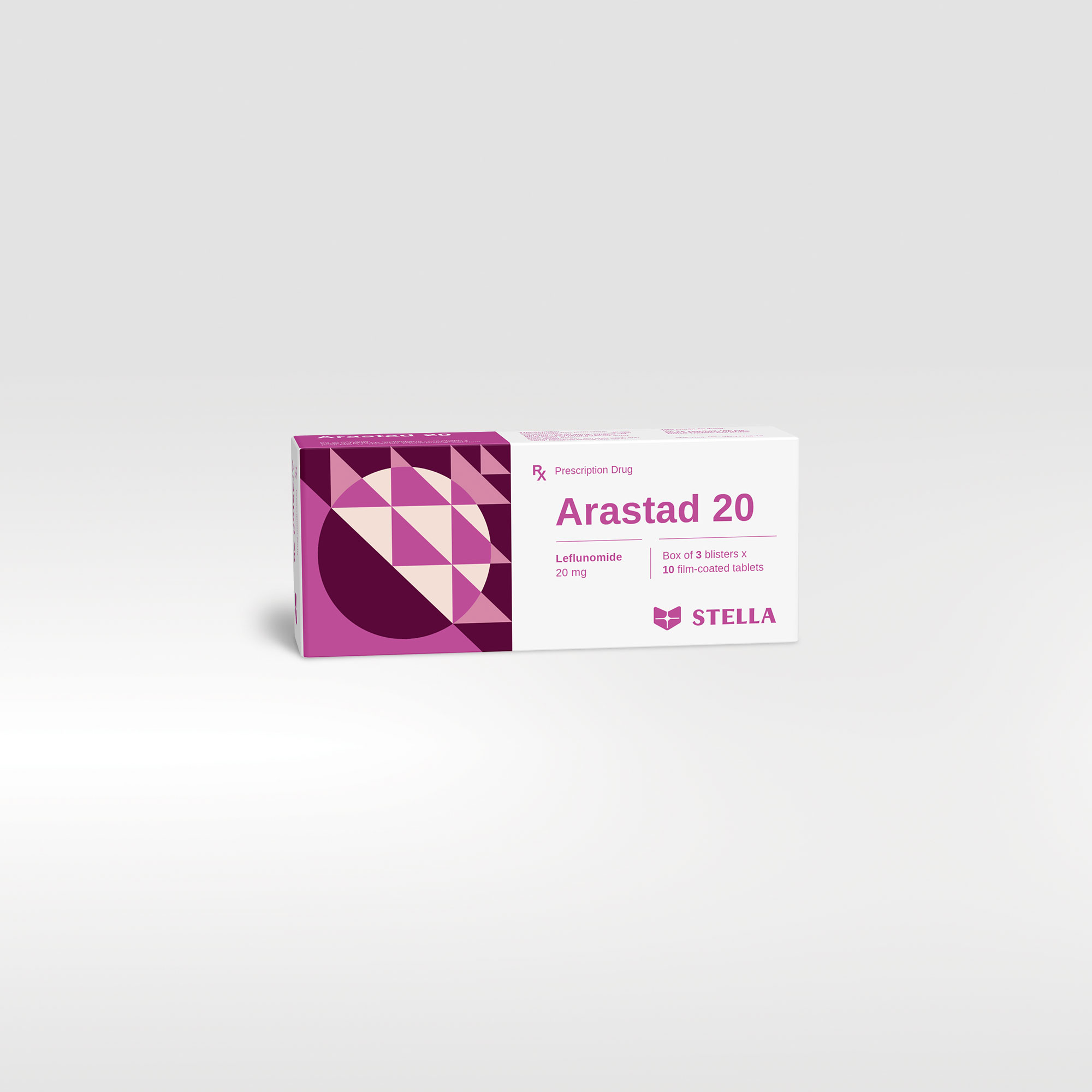Indications
Arastad 20 is indicated for the treatment of adult patients (18 years of age and older) with:
- Active rheumatoid arthritis as a “disease-modifying antirheumatic drug” (DMARD)
- Active psoriatic arthritis.
Dosage
- The treatment should be initiated and supervised by specialists experienced in the treatment of rheumatoid arthritis and psoriatic arthritis.
- Alanine aminotransferase (ALT) or serum glutamopyruvate transferase (SGPT) and a complete blood cell count, including a differential white blood cell count and a platelet count, must be checked simultaneously and with the same frequency:
+ before initiation of leflunomide,
+ every 2 weeks during the first 6 months of treatment, and
+ every 8 weeks thereafter.
In rheumatoid arthritis: Loading dose of 100 mg once daily for 3 days. Omission of the loading dose may decrease the risk of adverse events. The recommended maintenance dose is leflunomide 10 mg to 20 mg once daily depending on the severity (activity) of the disease.
In psoriatic arthritis: Loading dose of 100 mg once daily for 3 days. The recommended maintenance dose is leflunomide 20 mg once daily.
- The therapeutic effect usually starts after 4 to 6 weeks and may further improve up to 4 to 6 months. There is no dose adjustment recommended in patients with mild renal insufficiency.
- No dose adjustment is required in patients above 65 years of age.
Usage
- Arastad 20 is administered orally without regard to meals.
